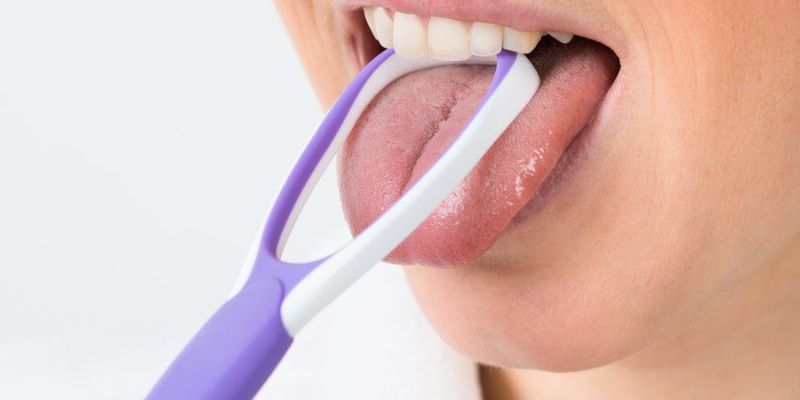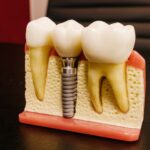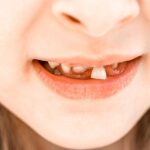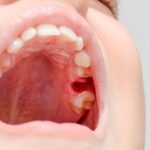Have you ever taken a peek at your tongue in the mirror? You might be surprised by what you see. A healthy tongue should appear pink and smooth, but many of us often overlook this crucial part of our oral health routine. Enter the humble tongue scraper—a simple yet powerful tool that can transform not just your breath, but also your overall well-being.
While brushing and flossing are essential for keeping teeth clean, scraping your tongue is an equally important step that often flies under the radar. With just a few seconds each morning, you can enhance your oral hygiene game dramatically. Curious about why this practice matters? Let’s dive into five compelling reasons to make a tongue scraper an indispensable part of your daily routine!
The Importance of Tongue Scraping for Oral Health
Tongue scraping is a crucial yet often neglected part of oral hygiene. The surface of your tongue can harbor bacteria, food particles, and dead cells. This buildup contributes to bad breath and may affect your overall health.
By using a tongue scraper, you remove these unwanted elements effectively. Regular scraping helps keep your mouth cleaner and fresher throughout the day.
Moreover, maintaining a clean tongue can enhance taste perception. A coated tongue may dull flavors, so removing that layer allows for a more enjoyable eating experience.
This simple practice also aids in preventing dental issues like cavities and gum disease. By reducing harmful bacteria levels in the mouth, you create an environment less conducive to plaque formation.
Incorporating tongue scraping into your routine supports not only oral health but overall wellness too. It’s easy to do and takes just seconds—making it an essential step worth considering!
How to Properly Scrape Your Tongue
Start by choosing a high-quality tongue scraper. Stainless steel or silicone options are popular for their durability and effectiveness.
Stand in front of a mirror to get a clear view of your tongue. Stick it out gently, taking care not to overextend.
Position the scraper at the back of your tongue, but avoid going too far back to prevent gagging. Apply gentle pressure as you pull it forward towards the tip.
Rinse the scraper after each pass to remove debris. You can repeat this process two to three times until you feel satisfied with the results.
After scraping, rinse your mouth thoroughly with water or mouthwash for extra freshness. Clean your tongue scraper regularly according to its material guidelines, ensuring it’s hygienic for future use.
Benefits of Regular Tongue Scraping
Regular tongue scraping offers a range of benefits that enhance your overall oral hygiene. By removing bacteria, food particles, and dead cells from the surface of your tongue, you can significantly reduce bad breath. This simple act helps keep your mouth feeling fresh throughout the day.
Moreover, tongue scraping can improve taste perception. When the layer of residue is cleared away, your taste buds are free to function optimally. You might find that flavors become more vibrant and enjoyable.
Another advantage is its contribution to better digestion. A clean tongue promotes saliva production, which is essential for breaking down food effectively before it enters your stomach.
Incorporating this practice into your routine also supports gum health by preventing plaque buildup and promoting a healthier oral ecosystem. The result? A brighter smile and a confidence boost in social situations!
Potential Risks and Precautions
While tongue scraping is beneficial, it’s essential to approach it with care. Improper technique can lead to irritation or injury of the delicate tissue on your tongue.
Using too much pressure while scraping may cause discomfort. Always apply gentle pressure and avoid going too far back on your tongue to prevent triggering a gag reflex.
If you have any oral conditions, such as sores or infections, consult a dental professional before starting this practice. Scraping over affected areas can worsen pain or delay healing.
It’s also crucial to maintain proper hygiene for your tongue scraper itself. Clean it regularly with soap and water after each use. This helps prevent bacterial growth that could negate the benefits of scraping.
Choose a high-quality scraper made from safe materials like stainless steel or BPA-free plastic for optimal results without added risks.
Other Ways to Maintain Good Oral Hygiene
Maintaining good oral hygiene goes beyond just using a tongue scraper. Regular brushing is essential. Aim for at least twice a day with fluoride toothpaste to effectively combat plaque and cavities.
Flossing should not be overlooked either. It reaches areas between teeth that your toothbrush can miss, helping to prevent gum disease and bad breath.
Stay hydrated throughout the day. Drinking plenty of water helps wash away food particles and bacteria, keeping your mouth fresh.
Don’t forget about regular dental check-ups. Professional cleanings are vital for maintaining optimal oral health, allowing dentists to catch potential issues early on.
Consider incorporating mouthwash into your routine as well. An antibacterial rinse can reduce plaque buildup while providing an extra layer of protection against germs.
Watch what you eat. A balanced diet rich in fruits and vegetables supports overall health and contributes positively to your smile.
Incorporating Tongue Scraping into Your Daily Routine
Incorporating tongue scraping into your daily routine is easier than you might think. Start by setting a specific time each day, perhaps in the morning right after brushing your teeth. This way, it becomes part of your oral hygiene ritual.
Choose a high-quality tongue scraper that feels comfortable to use. Metal or silicone options are popular for their effectiveness and ease of cleaning.
As you scrape, gently pull from back to front on your tongue’s surface. You’ll be surprised at how much residue can accumulate even overnight.
Make it fun! Consider playing your favorite song or podcast while you scrape. This not only makes the process enjoyable but also helps establish consistency.
Don’t forget to rinse your scraper after each use and keep it in a clean area for easy access next time.
Conclusion
Tongue scraping is a simple yet effective practice that can significantly enhance your oral health. By incorporating this easy routine into your daily hygiene habits, you not only reduce bad breath but also promote overall dental wellness. Remember to choose the right tongue scraper for your needs, and be mindful of proper techniques to avoid any discomfort.
By prioritizing tongue scraping alongside traditional brushing and flossing, you’ll create a comprehensive approach to maintaining fresh breath and healthy gums. Embracing these practices doesn’t just improve oral hygiene; it contributes positively to your confidence and well-being too.
Start today by investing in a quality tongue scraper, making it an essential part of your day-to-day routine. Your mouth will thank you!







